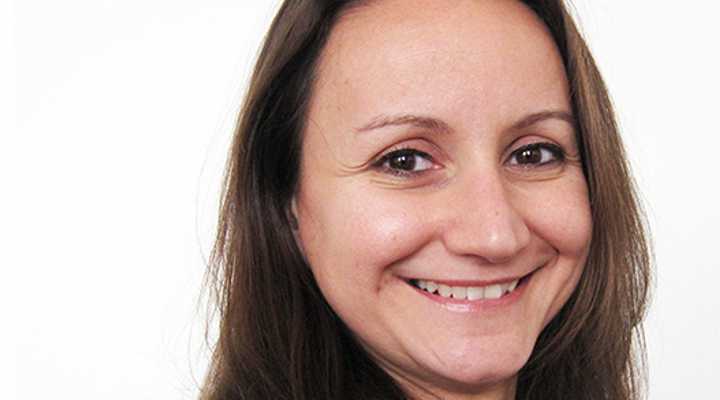With a doctorate in Psychology from Concordia University, Ioana Constantinescu is College’s Adapted Services Counselor. In other words, she’s the expert who runs the Marianopolis AccessAbility Centre. That’s where students get support for learning or physical disabilities, ADHD, visual and auditory impairments and mental health issues, as well as short-term setbacks such as a broken leg.
What is your philosophy?
I believe that every student wants to be successful. However, they don’t always know how to go about doing the required work to succeed. I developed a passion for helping students achieve their potential more than 15 years ago when I first started working with students with a learning disability.
What do you do at the College?
Part of my job is to ensure that every student with a diagnosed disability has reasonable accommodations for tests and exams. There are two types of students who need accommodations: those who have a permanent disability and require accommodations for their entire time at the College; and those who have a temporary physical disability. I also work with students one on one to help them develop better study skills, time-management skills and organizational skills.
Tell us about the AccessAbility Centre.
When a student has a diagnosed disability, we offer them test accommodations. For example, if they need to have a quiet space they may use one of our five small offices or extra time, a computer with or without spell check depending on the nature of the disability, an e-reader or speech-to-text software. What we provide depends on their individual needs. There is no prescribed list of accommodations for a given situation.
Does receiving accommodations impact a student’s ability to go university?
No. It is important for students to know that the process of receiving accommodations remains confidential and it does not show on their permanent record or transcript. Students may receive accommodations in university as well. I recommend that after they are accepted at university, they set up an appointment with someone at their new school to submit their documentation and start getting the support that they will need during that part of their education.
What is the approach of the AccessAbility Centre?
Each student has a unique pattern of strengths and weaknesses and requires a different set of accommodations. We are flexible in our approach but we have to follow the guidelines provided by the Ministry of Education. We also have to ensure that the accommodations provided do not compromise the exams. We do our best to honour the majority of the recommendations provided in the assessment while following the strict guidelines from the Ministry and without compromising the competencies evaluated in the testing.
How can students get services?
They must submit to the AccessAbility Centre or to me directly a document that includes the diagnosis of a permanent disability. All documents must be signed by a licensed professional in Quebec and in the case of a physical disability a medical doctor must clearly indicate the diagnosis and how it impacts the student’s ability to take tests and exams. Once the documentation is submitted, we review it and invite the student to meet with me to discuss the specific accommodations that we can offer. An Individualized Intervention Plan (called an IIP) is created and the student will sign it in the first two weeks of every semester when they require testing accommodations.
How do students who are registered with the AccessAbility Centre receive accommodations?
They must book online each of their tests five days before they are scheduled. The password-protected, private and confidential website lets them submit a request for accommodations to both the AccessAbility Services Center and the teacher giving a specific test. Once the request is approved, it shows up as green on the site, to signify that the accommodations have been booked. Students who don’t wish to do this online may complete two hard copies of the accommodations request form and submit one to their teacher and one to the centre, again five days before a test.
What is a typical day like for you?
I spend most of my time meeting students one on one. In most cases these are once-a-week meetings determined by the needs of each student. In most cases I help students plan their days and weeks. The schedule in college is very different than in high school. This can make the transition to college difficult for some students. In order to succeed in college a student must be well organized and have very strong study skills and executive-function skills.
What do you like best about your job at the College?
Before I started working at Marianopolis two and a half years ago, I worked with the same bright students in high school. Now I get to see some students who I met while they were still in elementary school, graduate from the College. I really enjoy working with these capable students. I love seeing them achieve their potential and moving on to university.
What are Marianopolis students like?
They are very bright and capable. They are very focused on their education and they know what they want to achieve in life. A disability, be it temporary or permanent, does not need to be an obstacle.

